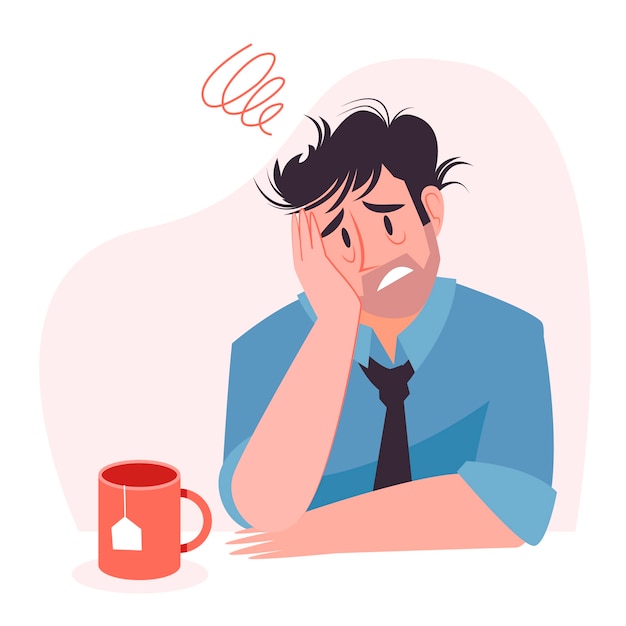Magnesium is often overlooked in discussions about mental health, yet it plays a significant role in the body’s ability to manage stress, anxiety, and mood. This essential mineral supports brain function, promotes relaxation, and regulates neurotransmitters that affect emotional well-being.
A growing body of research shows that magnesium deficiency may contribute to anxiety, depression, migraines, and even sleep disorders. Understanding the connection between magnesium and mental health empowers individuals to manage symptoms more naturally, starting with dietary changes and supplementation.
Keep reading to explore the connection between magnesium for mental health, the risks of deficiency, and practical ways to ensure you’re getting enough.
Why Magnesium Matters for Mental Health
Magnesium is involved in over 300 biochemical reactions in the body, many of which directly affect the nervous system. It helps regulate cortisol levels (the stress hormone), supports neurotransmitter production, and promotes healthy brain function.
When magnesium levels are low, the body struggles to control stress, leading to heightened anxiety, sleep disturbances, and emotional instability—further showing the importance of magnesium for mental health.
How Magnesium Affects the Brain:
- Regulates neurotransmitterslike serotonin and GABA, which influence mood and relaxation.
- Lowers cortisol production, helping manage stress responses.
- Supports melatonin production, crucial for sleep quality.
- Reduces inflammation, which has been linked to depression and anxiety.
Symptoms of Magnesium Deficiency Impacting Mental Health

Magnesium deficiency often goes unnoticed because symptoms can mimic common stress-related issues. However, when magnesium is low, mental health symptoms may worsen or become harder to manage.
Common Signs of Low Magnesium Include:
- Anxiety and Panic Attacks:Low magnesium levels can overstimulate the nervous system, causing feelings of restlessness, irritability, and sudden panic.
- Depression:Magnesium is necessary for serotonin production. Deficiency may contribute to low mood and depressive symptoms.
- Migraines and Headaches:Magnesium deficiency is linked to increased migraine frequency and severity due to its role in nerve function and blood vessel regulation.
- Insomnia and Sleep Disorders:Without adequate magnesium, the body struggles to relax, leading to trouble falling or staying asleep.
- Fatigue and Brain Fog:Magnesium helps produce energy at the cellular level. Low levels can lead to exhaustion and cognitive sluggishness.
Magnesium’s Role in Managing Anxiety and Depression
Research suggests that supplementing with magnesium may reduce anxiety symptoms and improve overall mood. Magnesium helps regulate GABA activity, a calming neurotransmitter that prevents over-excitation in the brain.
Benefits of Magnesium for Anxiety and Depression:
- Promotes calmness and relaxation
- Reduces physical symptoms of anxiety(e.g., rapid heartbeat, muscle tension)
- Enhances sleep quality, which improves mood regulation
- Supports brain plasticity, which is crucial for mental resilience
For individuals experiencing chronic stress, anxiety, or depression, ensuring sufficient magnesium intake is an important part of a holistic approach to mental wellness.
The Connection Between Magnesium and Migraines

Migraines are more than just headaches—they involve complex neurological changes, and magnesium deficiency is a known trigger. Studies show that magnesium can help prevent migraines by calming nerve excitability and regulating blood flow to the brain.
Those prone to migraines may benefit from increasing magnesium intake through diet or supplements, potentially reducing attack frequency and intensity.
Magnesium’s Impact on Sleep and Stress Management
Chronic stress depletes magnesium levels, creating a vicious cycle in which deficiency increases stress sensitivity. Magnesium is especially important for mental health because it plays a crucial role in activating the parasympathetic nervous system, the part of the body responsible for promoting calm and relaxation.
Additionally, magnesium supports melatonin production, which is essential for maintaining a healthy sleep-wake cycle.
Benefits of Magnesium for Sleep:
- Helps relax musclesand prevent night-time cramps
- Improves sleep qualityby regulating melatonin
- Supports restorative sleep, aiding emotional recovery from daily stress
If poor sleep is contributing to stress or anxiety, boosting magnesium intake may help reset your sleep patterns naturally.
Best Dietary Sources of Magnesium for Mental Health

Many people don’t consume enough magnesium through diet alone. Fortunately, several plant-based foods offer excellent magnesium content to support mental health.
Top Magnesium-Rich Foods:
- Leafy Greens:Spinach, Swiss chard, kale
- Legumes:Black beans, chickpeas, lentils
- Nuts and Seeds:Almonds, pumpkin seeds, sunflower seeds
- Whole Grains:Brown rice, quinoa, oats
- Dark Chocolate:High in magnesium and antioxidants
- Avocados and Bananas:Rich in magnesium and potassium
Pairing magnesium-rich foods with healthy fats can enhance absorption, further supporting mental health.
Magnesium Supplementation: What You Should Know
In some cases, dietary changes alone may not be enough to correct a magnesium deficiency—especially for those experiencing chronic anxiety, depression, or sleep issues. Supplementation can be an effective solution but should be used under medical guidance.
Common Magnesium Supplements:
- Magnesium Glycinate:Known for calming properties and high absorption.
- Magnesium Citrate:Helps with digestion and absorption but may cause loose stools.
- Magnesium L-Threonate:Shown to cross the blood-brain barrier and support cognitive function.
Supplement Tips:
- Take magnesium with meals to reduce digestive discomfort.
- Consult a healthcare professional for proper dosage.
- Combining magnesium supplements with a healthy diet and sunlight exposureenhances results.
Who’s at Risk of Magnesium Deficiency?
Certain groups are more prone to magnesium deficiency due to lifestyle, diet, or medical conditions:
- People under chronic stress
- Individuals with digestive disorderslike IBS or Crohn’s
- Those taking certain medications(diuretics, PPIs, antibiotics)
- Older adultswith reduced nutrient absorption
- High caffeine or alcohol consumers
If you fall into any of these categories and experience persistent anxiety, fatigue, or sleep issues, checking your magnesium levels may be beneficial.
When to Seek Help for Mental Health or Stress Concerns
While magnesium can support mental wellness, it is not a substitute for professional medical care. If symptoms like anxiety, depression, migraines, or insomnia interfere with daily life, seeking medical advice is crucial.
A healthcare provider can assess your symptoms, recommend testing for deficiencies, and guide you on safe supplementation or treatment plans.
Additionally, if your symptoms impact your ability to work or attend school, obtaining proper documentation may be necessary.

Magnesium plays a powerful role in mental health, influencing mood, stress levels, sleep, and brain function. Deficiency can silently contribute to anxiety, depression, migraines, and sleep disorders—yet it is often correctable through diet, supplements, and lifestyle changes.
If mental health challenges are interfering with your daily life or work obligations, remember that support is available. My Dr’s Note makes it simple to buy a doctor’s note online for medical leave when you need it most.
Get a Real Doctor’s Note Online with My Dr’s Note
Managing mental health conditions like anxiety, depression, or sleep disorders often requires time off work or school for proper recovery. If you need official documentation, My Dr’s Note provides a real doctor’s note for work or school—delivered quickly and securely.
Whether you need:
- A medical certificate for leave
- FMLA certification
- Or a doctor’s note online for work
We can help simplify the process. Our online doctor’s note is verified, HIPAA-compliant, and accepted by schools and employers nationwide.
Don’t let mental health struggles impact your responsibilities. Contact My Dr’s Note today to get a real doctor’s note online and prioritize your well-being with confidence.


